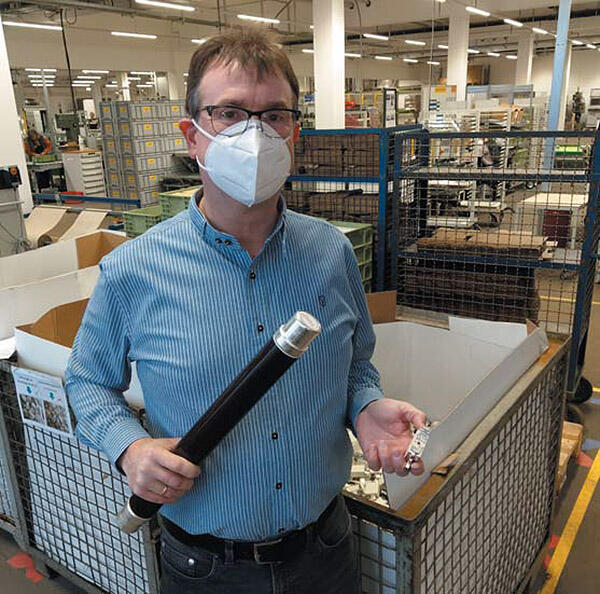SIBA is one of the founding members of the NH-HH-Recyclingverein, an association created in Germany and dedicated to the recycling of fuses. Its latest annual report also marks the association’s 25th anniversary, and specifically names SIBA is one of the major donors of used fuses.
German fuse maker SIBA has collected over 24 tonnes of used fuses for the NH-HH-Recyclingverein – equivalent to more than ten percent of the association’s total annual volume of a good 210 tonnes. This is just one of the facts to emerge from its 25th annual report, which was published in March. SIBA’s commitment is, however, no coincidence, as the company has been a member of the Recyclingverein since the very beginning in May 1995.
And therefore, in its look back over a “Quarter-century of sustainability”, the association also gives Thomas Kubiak, head of Quality/Environment at SIBA, the opportunity to say a few words. “I think that for a manufacturer like us, membership was more or less a matter of course. We attach great importance to ensuring that our production is not only efficient and environmentally friendly, but also value-conscious. It goes without saying, for example, that we recover as much silver as possible already in the production process. So it’s only natural that we should also help to collect old fuses that have served their purpose. We are therefore delighted that the association succeeds every year in recycling many tonnes of valuable copper and silver.”
According to the report, 2020 saw the collection of around 35 tonnes of copper and 511 kg silver, which is recovered from the used fuses on behalf of the association by recycling specialist Aurubis. This not only means that valuable materials are put back to use; the environment benefits, too. Recycling of the over 200 tonnes of old fuses also saves some 700 MWh of energy, avoids the handling of almost 30,000 tonnes of ore and spoil, and reduces carbon emissions by nearly 350 tonnes, the NH-HH-Recyclingverein calculates.
The revenue from the recycled materials is also invested sustainably. Part of it is donated for non-profit activities, while another part is invested in research projects of all kinds relating to fuses. One such project that has recently been completed has helped close a gap: researchers at Ilmenau Technical University have developed a tool that can now also determine for low voltage DC systems how fuses need to be configured in order to optimally protect personnel from the dangers of arc faults. So in this way, environmental protection also serves to protect people.
Click here for more information about the nh-hh-recycling initiative or here to download the current annual report (both available only in german language).

